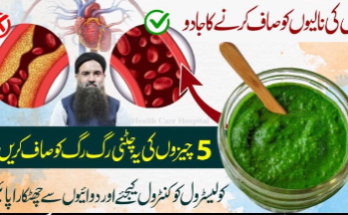Mental Health and Stress Management Techniques: Practical Strategies for Managing Stress Daily, Mindfulness, and the Importance of Mental Health in Overall Well-Being
Mental health is just as important as physical health, and managing stress is key to maintaining a balanced, healthy life. Chronic stress can take a serious toll on both your body and mind, leading to issues like anxiety, depression, sleep disturbances, and even physical health problems like high blood pressure or heart disease. Fortunately, there are practical ways to manage stress and prioritize your mental health every day. Here’s a breakdown of how to do just that.
1. Understanding Stress and Its Impact
Stress is a natural response to challenges or demands, but when it becomes chronic, it can lead to significant health issues:
- Physical effects: Chronic stress can cause headaches, stomach problems, fatigue, muscle tension, and increased susceptibility to illness.
- Mental and emotional effects: Constant stress can lead to feelings of anxiety, depression, irritability, and difficulty concentrating.
- Behavioral effects: Stress may lead to unhealthy coping mechanisms such as overeating, smoking, drinking alcohol, or withdrawing from social interactions.
2. Practical Stress Management Techniques
Managing stress effectively requires a combination of lifestyle changes, self-care practices, and techniques that help you regain control and calm your mind. Here are some strategies to help:
a) Breathing Exercises and Deep Breathing
Deep breathing is one of the most effective ways to instantly reduce stress. When we’re stressed, our breathing becomes shallow and rapid, which increases feelings of anxiety. Deep breathing can help lower heart rate, reduce blood pressure, and promote a sense of calm.
How to Practice Deep Breathing:
- Sit comfortably or lie down.
- Close your eyes and take a deep breath in through your nose for a count of four.
- Hold your breath for a count of four.
- Slowly exhale through your mouth for a count of six.
- Repeat for a few minutes, focusing on each breath.
b) Progressive Muscle Relaxation (PMR)
PMR is a technique that involves tensing and then relaxing different muscle groups in your body to reduce physical tension and stress.
How to Practice PMR:
- Start with your feet and slowly work your way up through your body (legs, abdomen, arms, shoulders, and neck).
- For each muscle group, tense the muscles for 5–10 seconds and then release. Focus on the feeling of relaxation after you release the tension.
- This practice helps to reduce physical symptoms of stress and promotes overall relaxation.
c) Mindfulness Meditation
Mindfulness meditation is the practice of being present and fully engaged in the moment, without judgment. It can help reduce stress by teaching you how to observe your thoughts and feelings without getting caught up in them.
How to Practice Mindfulness:
- Find a quiet place and sit comfortably.
- Focus on your breath as it enters and leaves your body.
- If your mind starts to wander, gently bring your focus back to your breath without judgment.
- You can also use a guided mindfulness app or video for more structure.
Benefits:
- Reduces anxiety by helping you stay focused on the present.
- Enhances self-awareness and emotional regulation.
- Promotes relaxation and mental clarity.
d) Physical Activity
Exercise is one of the most effective ways to reduce stress. When you exercise, your brain releases endorphins—natural chemicals that help improve mood and alleviate pain.
How to Use Exercise for Stress Relief:
- Go for a brisk walk or jog, try yoga, or engage in a physical hobby like swimming or cycling.
- Even small amounts of movement, such as stretching or dancing to music, can reduce stress levels significantly.
- Consistency is key—aim for at least 30 minutes of moderate physical activity each day.
e) Time Management and Prioritization
Feeling overwhelmed by a long to-do list is a major stressor for many people. Learning how to manage your time effectively can help reduce stress by making tasks feel more achievable.
Time Management Tips:
- Break tasks into smaller steps: Instead of focusing on a large project, break it into manageable chunks.
- Prioritize your tasks: Use the Eisenhower Matrix (urgent vs. important) to decide which tasks need immediate attention and which can be deferred.
- Set boundaries: Learn to say no to commitments that add unnecessary stress, and be realistic about what you can accomplish in a day.
f) Social Support and Connection
Building strong relationships and seeking support from friends, family, or a counselor can help reduce stress and improve mental health.
How to Build and Lean on Social Support:
- Spend time with people who make you feel supported and uplifted.
- Open up about your feelings when you need to—talking with someone you trust can be incredibly therapeutic.
- Participate in activities with others that bring you joy, like exercising together, cooking, or engaging in hobbies.
3. Self-Care Practices for Mental Health
Taking time for yourself and practicing self-care is vital for maintaining mental and emotional well-being.
- Sleep: Prioritize good sleep hygiene and aim for 7–9 hours of quality sleep each night. Poor sleep can increase stress levels and negatively impact mood and cognitive function.
- Nutrition: Eating a balanced diet with plenty of fruits, vegetables, lean proteins, and whole grains helps nourish both body and mind. Avoid excess caffeine or alcohol, as these can increase anxiety and disrupt sleep.
- Journaling: Writing about your thoughts and feelings can help you process emotions, gain perspective, and relieve stress. Try free writing or use prompts to guide your reflection.
- Hobbies: Engage in activities that bring you joy and relaxation, such as reading, painting, gardening, or playing an instrument.
4. The Importance of Mental Health in Overall Well-Being
Mental health is an integral part of your overall well-being. It affects how you think, feel, and act, as well as how you handle stress, relate to others, and make decisions. Just as physical health requires maintenance, so does mental health. Here’s why focusing on mental health is essential:
- Physical Health Connection: Mental health and physical health are closely linked. Chronic stress can lead to physical health issues such as heart disease, digestive problems, and immune system dysfunction.
- Work and Productivity: Poor mental health can affect concentration, creativity, and overall productivity, which can have an impact on work and relationships.
- Quality of Life: Good mental health improves your ability to enjoy life, build relationships, and handle life’s challenges with resilience.
5. Creating a Stress-Resilient Routine
Integrating these strategies into your daily life can help you build resilience to stress over time. Establishing a routine that includes regular physical activity, mindfulness, social support, and self-care will make it easier to manage stress and maintain a sense of balance, no matter what life throws your way.
- Start small: If you’re new to stress management techniques, begin by incorporating one or two practices, such as deep breathing or a daily walk.
- Consistency is key: It’s more effective to practice small stress-reducing habits consistently than to try to implement everything at once.
- Be patient with yourself: Stress management is an ongoing process, and it’s normal to have difficult days. The important thing is to keep trying and to be kind to yourself.
Final Thoughts
Stress is a part of life, but it doesn’t have to control you. By incorporating daily stress management techniques, prioritizing mental health, and practicing self-care, you can better cope with challenges and improve your overall well-being. Remember, small, consistent changes can have a big impact on your mental health over time.




